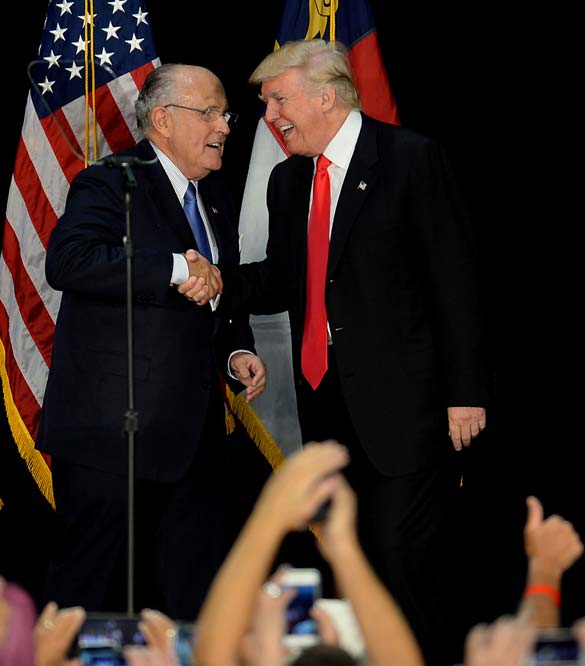 Rudy Giuliani and Donald Trump. Jeff Siner for The Charlotte Observer
Rudy Giuliani and Donald Trump. Jeff Siner for The Charlotte Observer
The president of
That's wrong. Former federal prosecutor
In other words, if
Presumably Mueller would consider other evidence too. Trump and Cohen are both legendary liars, after all.
But the point remains: When it comes to charging someone, the prosecutor gets to decide who's lying. For a conviction, however, it falls to a jury or judge to decide whether someone is truly guilty.
Now there are many problems with my analogy. For starters, no one is accusing Trump of murder. Also, as a matter of
This fact illuminates one of the many flaws with Giuliani's defense. He claims he's protecting Trump from being criminally charged with perjury while also insisting the president cannot be criminally charged with perjury (or anything else).
If pressed, the former
But don't let the phrase "high crimes and misdemeanors" fool you. Impeachment isn't a legal process at all; it's a political one. The impeachment power vested in
While it is possible that a Democrat-controlled House might vote to impeach Trump, it seems incredibly unlikely that a two-thirds majority of the
But my point here isn't really to demonstrate the weaknesses of Giuliani's legal and political arguments. Nor is it to point out that he zigzags between making legal arguments for political purposes and political arguments disguised as legal ones. Rather, it's to illuminate the fact that while Giuliani is right to keep Trump from testifying, he's not making an argument on behalf of the public interest. Like
Giuliani is doing whatever he can to protect that client. Where he draws moral or ethical lines to that end is between him and his conscience. But the rest of us are not obliged to argue like we're Trump's legal water-carriers. Refusing to testify might make total sense as a matter of Trump's personal self-interest -- which is Giuliani's concern -- but it is not obvious that such a refusal would be in the public interest. We deserve to know all of the relevant facts. If that makes the president's job harder, so be it. The
As
Trump's supporters -- the ones who aren't on his payroll -- are free to make any argument they want in his defense, but they'd probably be more persuasive to the unconverted if they focused on the public interest and not the president's self-interest.
Jonah Goldberg is a fellow at the American Enterprise Institute and editor-at-large of National Review Online.


 Contact The Editor
Contact The Editor
 Articles By This Author
Articles By This Author